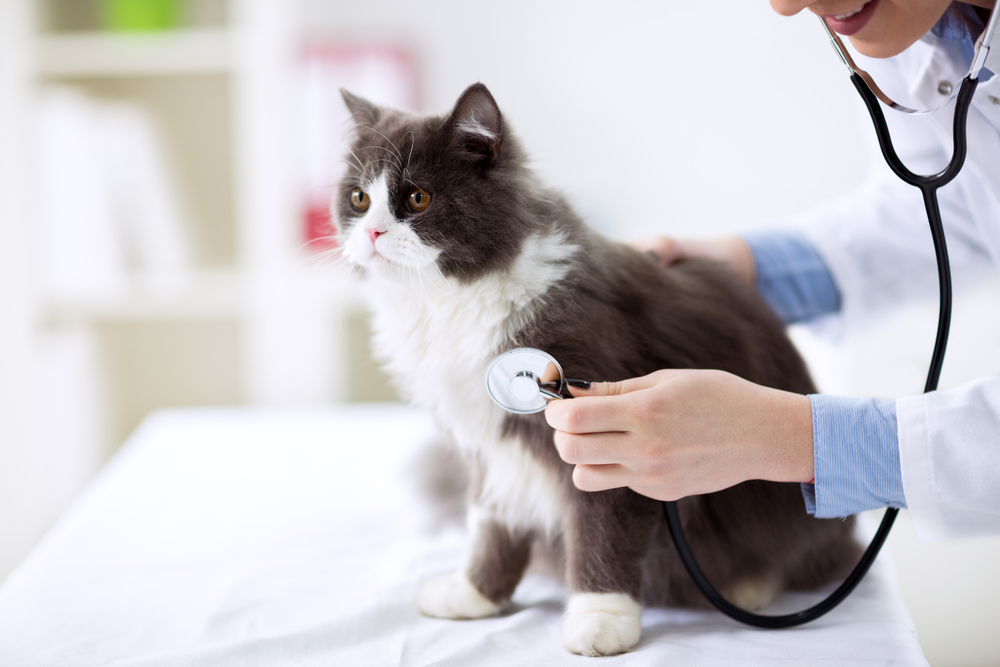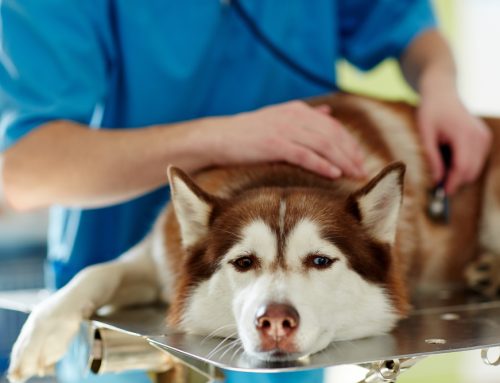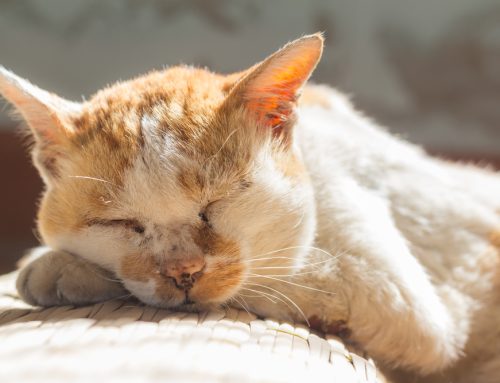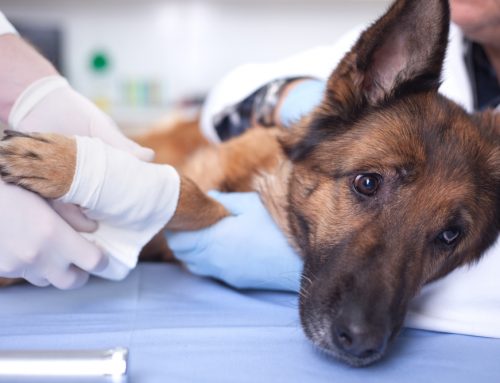The bond with your cat is special, and cat owners enjoy the comfort of their purring companion while working in their home office, or relaxing after a long day. Cats are naturally independent, and although they have been human companions for more than 10,000 years, we may never know what they are thinking or feeling. Additionally, cats are masters at masking disease or discomfort signs, making determining a cat’s medical needs a challenge. The American Veterinary Medical Association and the American Animal Hospital Association (AAHA) recognize the challenges of caring for a feline friend, and have developed guidelines for cat preventive care. Our Highlands Veterinary Hospital team wants to ensure your cat remains healthy throughout their lives, so follow these four cat preventive care tips.
#1: Prepare your cat for a preventive care visit
Many cat owners are reluctant to take their cat for a veterinary examination, because some cats seem to have a sixth sense when they need their shots, and immediately retreat to their secret hiding spot. Additionally, many cats have negative associations with their crate, because it’s used only for traveling to the veterinary hospital. However, a crate is the safest, most effective way to transport your cat, and ensuring your cat is comfortable there will decrease the associated stress with a veterinary visit. Begin acclimating your pet to their crate when they are young to decrease their stress. Tips for helping your cat have the purrfect crate experience include:
- Leave your cat’s crate out and open in the house when you are not taking them anywhere.
- Feed your cat meals and treats inside the crate.
- Line their crate with a cozy blanket, and put their favorite toy inside.
- Create a calming environment by spraying a small amount of a pheromone spray, such as Feliway, on the blanket inside the crate.
- Consider taking your cat for short car rides in their crate, so they learn that the crate is not only for veterinary visits.
#2: Schedule yearly or more frequent veterinary examinations for your cat
According to a 2013 study conducted by Bayer Health Care and the American Association of Feline Practitioners, more than half of U.S. cats had not seen a veterinarian for needed checkups. Advances in veterinary medicine have resulted in cats living longer, but because they mask illness, many older cats develop an advanced disease, such as kidney failure, before they receive their veterinary examination. Your Highlands Veterinary Hospital team understands the stress of a veterinary visit, so we have a dedicated cats-only examination room and hospital ward that is equipped with calming sprays and ample catnip to provide a low-stress experience.
Additionally, our veterinarians have implemented specialized Free Free handling techniques, to ensure your feline companion is comfortable throughout the examination. During your cat’s yearly preventive care examination, they will receive a nose-to-tail examination, and our veterinarian will evaluate their body condition, lifestyle, nutrition, and overall health. Our veterinarian also may recommend blood work to evaluate your cat’s organ health, and identify any underlying problems, although your cat may not be showing disease signs. Early disease detection will ensure the best outcome, should your cat require treatment.
#3: Ensure your cat’s vaccinations are current and keep pesky parasites away
Although your cat may spend most of its time indoors, vaccinations are the best insurance against preventable illness, and the easiest way to help them live a long and healthy life. Specifically, vaccinations prepare the body’s immune system to fight various disease-causing organisms. We recommend that your kitten receive a core vaccination series when they are 8 weeks of age, and then every four weeks, until they are 16 weeks old, followed by booster vaccinations every one to three years when they are adults. Core cat vaccinations include protection against herpes virus, calicivirus, panleukopenia, leukemia virus and rabies virus.
In addition to vaccinations, year-round parasite control is a simple and effective way to prevent diseases. Many parasites, such as fleas and mosquitoes, carry dangerous, sometimes life-threatening diseases. Parasite control is important throughout your cat’s life, and will vary based on their lifestyle and veterinary recommendations.
#4: Check your cat’s chompers and schedule them for a dental cleaning

Similar to people, your cat’s dental health is important for overall wellness and disease prevention. Dental disease is one of the most common and serious health problems in cats, and recent studies have shown that more than 50 percent of cats will develop a form of dental disease by age 4. Oral bacterial overgrowth can lead to serious infections throughout the body, especially in the heart. Fortunately, regular dental cleanings can slow plaque buildup, which can lead to more serious dental problems. Veterinary dentists recommend that cats have their first preventive dental cleaning by two years of age, followed by annual cleanings. Studies have shown that cats with healthy mouths live longer lives. During your cat’s yearly preventive care examination, our veterinarian will look for dental disease signs, such as inflamed gums or bad breath, and may recommend a dental cleaning under anesthesia.
Call our Highlands Veterinary Hospital office if you have any questions about your cat’s preventive care, or to schedule them for an appointment to ensure their vaccinations and parasite control are current, and that their teeth are healthy.







Leave A Comment